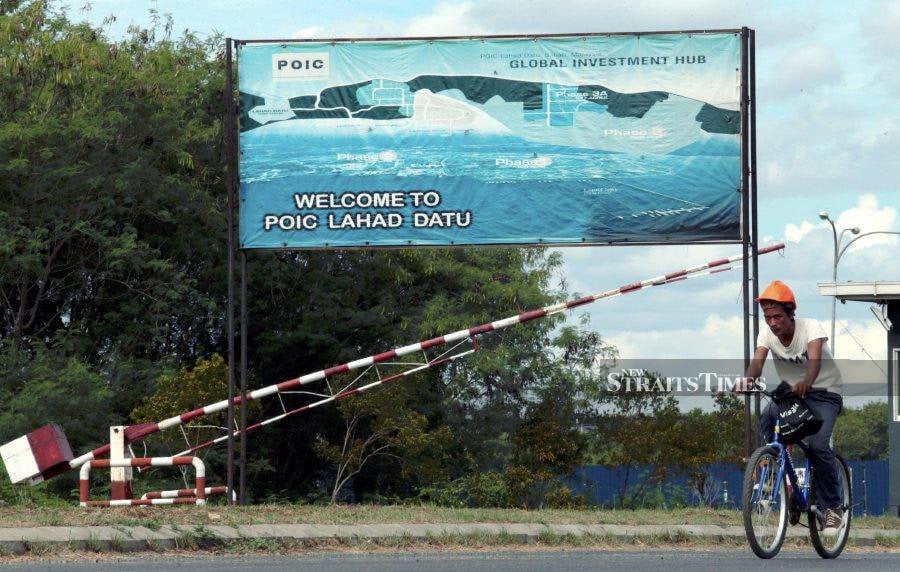By Olivia Miwil - January 13, 2022 @ 5:25pm
LAHAD DATU: The setting up of a full-fledged customs office at the POIC Port here confirmed its status as a Legal Landing Place and will facilitate its growth and development.
A Legal Landing Place is a declaration of a status required of all ports and was granted by the Customs Department.
"This is a significant development as we look towards playing our role in turning Sabah's east coast, particularly Lahad Datu, into the regional logistics hub and a gateway to the BIMP-EAGA (Brunei Darussalam–Indonesia–Malaysia–Philippines East Asean Growth Area)," said Palm Oil Industrial Cluster (POIC) Sabah Sdn Bhd chief executive officer Datuk Fredian Gan who oversees the port.
He was speaking at a ceremony at POIC's Container Terminal near here where he handed over an office to be used as the operations base for the Customs Department.
The permanent office will oversee customs matters at all terminals at POIC Lahad Datu.
Besides the container terminal, the port also operates a dedicated terminal for dry bulk and liquid cargo, as well as barge landing.
Gan added that connectivity is crucial in realising the full economic potential of eastern Sabah, which lies strategically within resource-rich BIMP-EAGA and the untapped opportunities of the 13-nation Regional Comprehensive Economic Partnership (RCEP) which came into effect just this month.
RCEP, which includes China, Australia, New Zealand, South Korea and Japan and the Asean nations, represents a massive economic and population bloc of the world.
"Sea ports are vital in the whole scheme of logistics and POIC is keen to play a part in bringing out the potentials of the logistics industry in Malaysia which is even bigger than oil palm in terms of contribution to the national GDP."
He also said that the POIC Port has combined infrastructure worth over RM1 billion built to drive growth in Sabah and capture the logistics potentials of the region.

Comments
Post a Comment